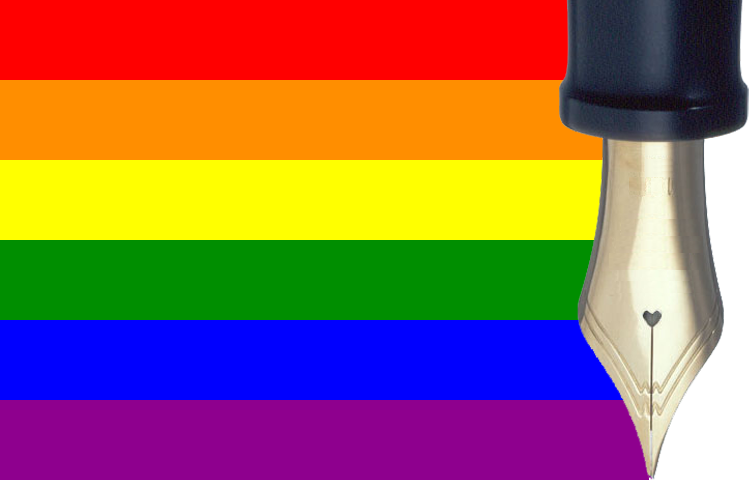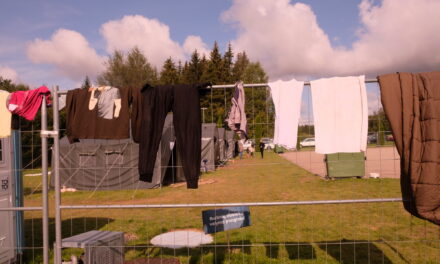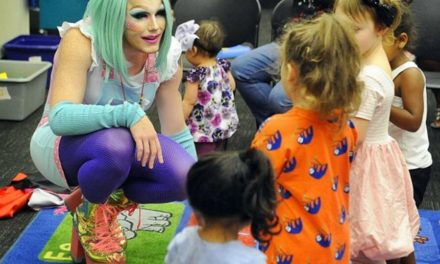This year, for example, I had to realize that I most likely did not cite a non-binary mulatto researcher in any of my theses.
We'd think, wouldn't we, that thanks to the "attosecond light pulses" we'd really become educated in cutting-edge research this year. However, there were many other epoch-making developments in 2023 that badly escaped our attention - so let's quickly fill in the gaps, at least in two small areas, if only so that 2024 doesn't hit us so unprepared.
A Little Theory: Citation Justice for Beginners
In case anyone missed it this year: there is still room for the University of Birmingham's "citation justice" training until February 29, 2024, in the framework of which participants can learn about the concept of "citation diversity statements" and some useful tools.
What is this and why is this necessary? Well, because I don't know who is doing it, but I, for example, had to realize that this year
I most likely did not quote a non-binary mulatto researcher in any of my theses.
But from a female author, it could easily be that I only used a heterosexual as a source. It didn't even cross my mind that such things should be paid attention to, even though the University of Maryland now specifically points out:
"in a patriarchal society based on white supremacy, citation is a form of influence" - so anyone who cites mostly white men actively contributes to the exclusion of other social groups.
In contrast, citation justice ( the Canadian definition )
"the process of consciously quoting people in our work to uplift and center gender-diverse, Black, Indigenous, People of Color, LGBTQIA+ people".
We don't have to think about very complicated procedures here:
we simply count how many authors belonging to marginalized groups we drew on, for example, in our dissertation on the shaping of femtosecond pulses,
then if there is a problem, we look for a few more quota mulattos and quota queers (caution: "Don't assume anyone's gender. Let's look it up, look for the authors on the Internet"; also "keep in mind that a personal narrative can also be a reliable source").
We can be helped by clever databases that list researchers by race,
and browser tools that indicate that a particular Hannah, for example, is 97 percent likely to be a woman.
Intoxicating win-win situations can develop here, if you think about it more: if you feel your Hirsch index is low in a research group made up of white men, you can carefully spread the word in a few places that you are bisexual - your citations will automatically jump, and on paper the proportion of LGBT researchers will also increase.
In the meantime, 29 scientists (including Harvard's first African-American professor of economics and two Nobel laureates) this spring in a joint study dared to show with ample examples what the problem is when science is taken over by social engineering and ideological control the place of merit-based.
So when, for example, the American Chemical Society was otherwise dominated by Asians
For the sake of visibility, researchers with a specific LGBTQIAPN+ orientation or identity can publish articles in one issue of the journal "Organic Chemistry"
(where P = polyamorous or pansexual, N = non-binary), or when it is stated in university job advertisements that applicants must first submit a declaration of diversity, i.e. a mandatory statement containing "what it means to be anti-racist and what examples can I use to prove that I am an anti-racist" will be reviewed (assigning the lowest score to the kind of avowed commitment that "I will treat everyone the same regardless of background"), and only then will the rest of the application material be examined (if at all). Instead of those practices, the authors of the study in question would consider the depoliticization of science to be far more expedient, arguing (with the example of Katalin Karikó among others) that "merit-based science is what is truly fair and inclusive."
In the end, only the Journal of Controversial Ideas, which gave space to "controversial ideas", was willing to publish the study - after a long time.
However, the authors even sacrificed an Obama quote to citation justice.
And a little exercise: An introduction to microaggressions
"Is microaggression a 'ladies' term?" - asked the Boston Globe , after the contract of a certain Dr. Vito Perrone, who applied to be the head of the school district, was revoked because
during the written negotiations, he addressed two female persons by e-mail with the address "ladies", which one of them judged to be a breach of confidentiality, a form of abuse.
(The other woman did not see anything objectionable in being a lady, in fact, she willingly bowed her head to the sensitivity of her colleague.)
The diversity and inclusion experts interviewed by the newspaper said: the term should really be avoided, as the word has a long and complicated history (specifically, it originates from the Old English word hlǣfdīge, which, as the female equivalent of hlāford=lord, meant a woman considered to be a boss for a thousand years, but let's not damage the ideological superstructure with aggressive linguistic arguments); instead of such potentially insulting and loaded words, according to expert opinion, it is always worth asking in advance (obviously in a separate e-mail) who should be addressed and how.
One (female) expert on "inclusive leadership" based on the encouragement and acceptance of the diversity of individuals stated:
the concept of "lady" does not come to mind of a woman who has authority and who really does her job successfully
(well, I didn't claim that the derivation will be clearer and more well-founded compared to attosecond physics); ergo, if a candidate uses the term "ladies" at any stage of the hiring process, it can be inferred that the candidate ignores diversity developments and is "operating according to a very old paradigm".
A non-binary gender historian pushing "they/them" pronouns pointed out as proof that no one ever calls her "lady" at work - adding that the appropriate way to address groups of people is, for example, (taken from Southern slang, about "hey, you" level) " y'all" and "People!" (I apologize to those with an angora cat identity).
It is already a side story that the school district will undoubtedly face the bar: the second most suitable candidate called in after the elimination of Mr. Perrone also failed , after a sharp-eyed student (the dream of all detention officers) tracked him down and reported:
the lady, sorry, the female candidate used "conservative transphobic rhetoric" at the beginning of 2021,
when, in two Facebook posts, he drew the attention of a handful of his readers to the equal opportunity problems caused by transgenders competing in women's athletics competitions. An investigation by the city police confirmed that the cited posts were indeed from the candidate, who decided to withdraw his application as soon as possible.
The little mimosa, even though it hasn't even been made into a lady.
Francesca Rivafinoli / Mandiner
Featured Image: Wikipedia













